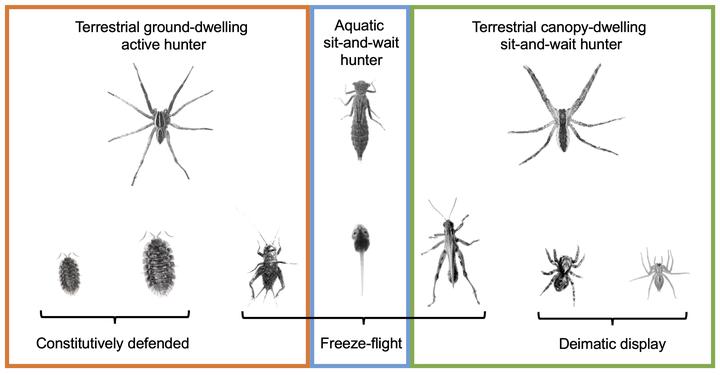Prey metabolic responses to predators depend on predator hunting mode and prey antipredator defenses

Abstract
Predation risk causes prey to react in numerous ways, from life history changes to shifts in habitat. These responses give some insight into how different types of predators affect prey, but prey responses are often not comparable across taxa and experimental systems. Metabolism is a ubiquitous trait among living organisms, which offers a way to examine predator effects and create generalizable outcomes. We examined metabolic responses of terrestrial and aquatic prey from three antipredator functional groups under varied contexts of predator cues. We found that constitutively defended prey did not exhibit metabolic responses to any type of predator cues, while deimatic and freeze-flight prey exhibited metabolic responses that were dependent on both the cue type and predator hunting mode. Consistent with previous studies on nonconsumptive effects, we also found that ambush predators elicited a metabolic response while active predators did not. We propose that future work on this topic should continue to take a metabolic approach as a unified, scalable response variable to the sensory ecology of nonconsumptive effects, while identifying additional systems that can evaluate more fully both predator hunting mode and prey antipredator defenses.